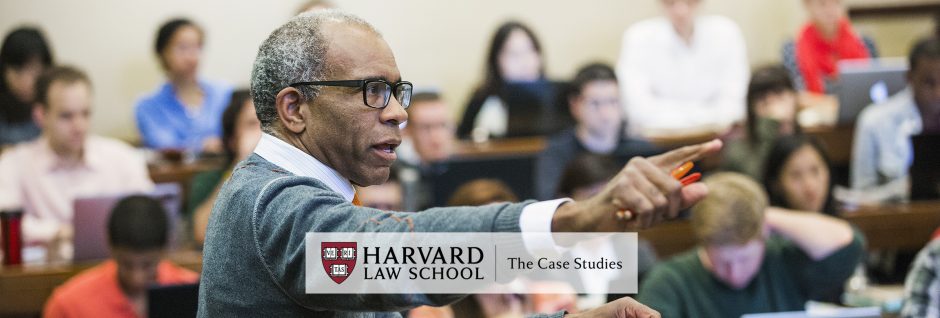Products: Sponsorship at Wilmer Cutler and Pickering (A): Yoon-Young Lee; From Brussels to Paris
The Pathfinder Program, an associate leadership development program by the Leadership Council on Legal Diversity, used two case studies from Harvard Law School to teach early-career lawyers to think proactively about challenges that might arise in the course of their careers.
LCLD, formed in 2009, works to develop diverse attorney talent to lead organizations and foster inclusiveness in society; its 220 members are general counsel or managing partners at leading corporations and law firms. The Pathfinder Program, which was launched this year, has been designed to provide early-career attorneys with “internal professional networks through relationship building skills; foundational leadership skills; and an understanding of career development strategies applicable to both in-house and law firm practice.” The curriculum includes face-to-face workshops, break-out sessions, and discussions; experiential online modules on Sponsorship, Career Management/Goal Setting, and Interrupting Bias; advice and networking with Fellows; facilitators at the participants’ workplace that ensure Pathfinder lessons are germane; and peer groups for networking and learning.
Carrie Fletcher, Executive Director of Executive Education at Harvard Law School, worked with LCLD Program Director Lori Lorenzo to design a case study module within the broader Pathfinder program. Fletcher says, “Young professionals are under enormous pressure with billing and revenue generation. There is often not much time to stop and reflect on personal challenges and accomplishments, client needs, or strategic objectives.” Pathfinder, and the case studies it uses, offer that time for reflection and growth.
In mid-April, Fletcher joined the Pathfinders in Chicago to teach Sponsorship at Wilmer Cutler and Pickering (A): Yoon-Young Lee to a breakout group for law firm associates. The case is often taught to a more senior audience—partners who are in a position to serve as sponsors—but Fletcher shaped the discussion around how associates themselves can help develop a culture of sponsorship in their firms. The group discussed what actions they might take to position themselves to be sponsored, as well as ideas for how to find sponsors and how, at an associate level, to work toward a sponsorship culture. Fletcher explains, “You can’t assign or dictate sponsorship relationships, but you can create a culture that is ripe for sponsorship relationships.” Sponsorship, says Fletcher, is not necessarily a widespread conception in law firms, and to really take hold the philosophy must be embedded in different tiers of the firm. As Fletcher notes, “the Yoon-Young case shows that people who fill sponsor roles get a lot out of the experience too”; this encourages early-career lawyers not to be shy about seeking sponsorship. The Wilmer Cutler B Case, which provides the sponsor’s perspective, helps participants consider the actions and traits of a good sponsor and how a young associate might emulate those.
The Pathfinders breakout group for in-house counsel discussed From Brussels to Paris with John Mitchell, a consultant who has experience teaching cases. “These are high-level business-legal tensions, showing the reality of some of the problems above the pay grade of junior inside counsel,” says Fletcher. “The case also provides a basis for a more targeted discussion about the precise challenges that more junior inside lawyers face in their roles.” How do newer lawyers become ready for these tensions? How do these tensions translate down to the work of lawyers who are not yet in a general counsel role? What conflicts or tensions might associates face in their current roles? Fletcher says, “We agreed that, although From Brussels to Paris is dealing with business issues that are more sophisticated than younger lawyers likely face, it is a terrific discussion starter for the complexity of working as counsel inside an organization.”
These case studies not only educate diverse future leaders, but also promote diverse intellectual skills. Fletcher explains, “For lawyers, case studies are a different way of learning—learning by story. And in well-done case study discussions, of course, lawyers will learn from each other. The storyline and structure of the cases can sometimes make it easier to talk about difficult, challenging, or complicated topics.”
HLS continues its partnership with LCLD in June, when senior members attend a leadership program on campus.

